Yamaha Music Japan Co., Ltd., a Japanese sales subsidiary of Yamaha Corporation, operates under the policy of “developing closer ties with customers,” and is striving to enhance customer lifetime value (LTV). To achieve this goal, the company selected ABeam as its partner. Since 2023, the company has been advancing plans for subscription-based video on demand (VOD) services and establishing store operations that integrate digital channels with directly managed stores/schools. With support from ABeam, the company has launched several new services based on the jointly developed concept, including a point card app and musical instrument performance support services.
Supporting transformation to enhance LTV and maintain customer connections Planning new services and driving integration of digital channels with directly managed stores/schools
- Sports And Entertainment
- Retail/Distribution
- Management Strategy/Reformation
- Marketing, Sales, and Customer Service
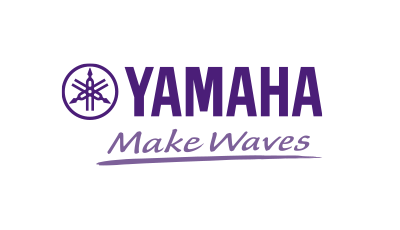
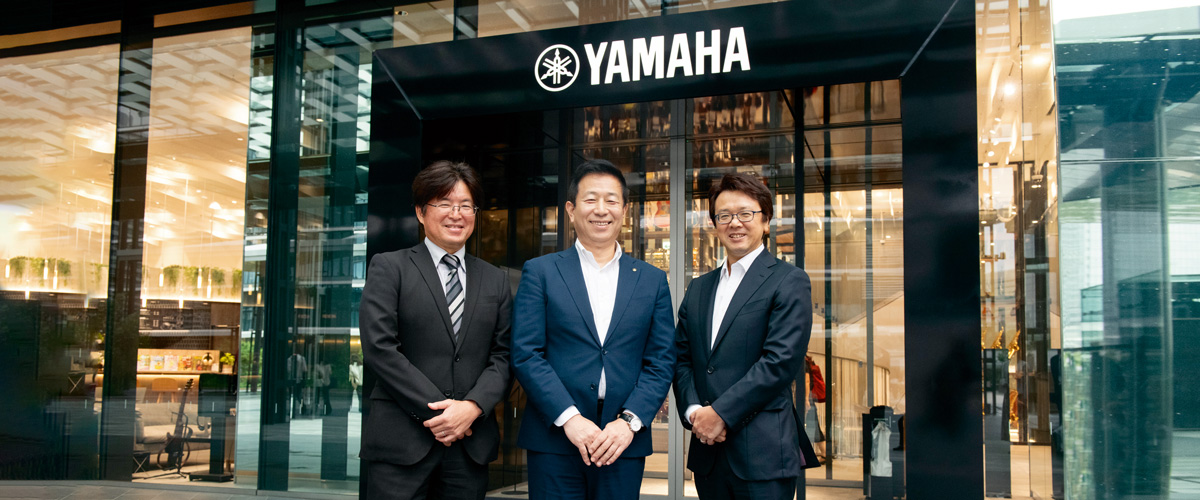
Challenge
- Enhancement of LTV by “developing closer ties with customers”
- Insufficient digital touchpoints to maintain customer connections
- Persistence of analog-style operations at directly managed stores/schools
- Fragmentation of initiatives between digital channels and directly managed stores/schools
ABeam Solution
- Developing a vision to integrate digital channels with directly managed stores/ schools, aimed at enhancing LTV
- Planning new digital services to maintain customer connections
- Designing concepts for improving operational efficiency at directly managed stores/schools through digital technology
- Driving organizational and cultural transformation to support the integration of digital channels with directly managed stores/schools
Success Factors
- Consensus building with management on the goals and the roadmap for enhancing LTV
- Launch of “Yamaha Music Members Plus,” a service designed to support customers playing musical instruments and develop closer ties with customers
- Reorganization of internal structures to facilitate the integration of digital channels with directly managed stores/schools
- Planning and implementation of field-driven “early small win” initiatives to accelerate digitalization
Background and Overview
Set “develop closer ties with customers” as a key theme of the medium-term management plan and formulated corresponding measures
Yamaha Music Japan Co., Ltd., a Japanese sales subsidiary of Yamaha Corporation, engages in a wide range of activities, including the wholesale and marketing of Yamaha products, the music school business, operation of directly managed retail stores and music schools, and the provision of various services. In April 2024, Yamaha Music Japan merged with Yamaha Music Retailing Co., Ltd., which had been responsible for operating directly managed retail stores and music schools. The merger aims to generate demand and augment brand value through the integrated efforts of distributors, directly managed stores, and music schools, while building a system to deliver enhanced music experiences to customers in their communities. Since the merger, the company has been working to coordinate wholesale and retail sales initiatives and enrich its service offerings.
The company is also focused on disseminating music-related information, executing campaigns, providing opportunities for hands-on experiences, and proposing equipment for installation in concert halls and music facilities. Additionally, it operates Yamaha Music Members, a membership service designed to support customers in their enjoyment of a fulfilling life with music, and offers customer support.
In its medium-term management plan “Make Waves 1.0” for FY2019 through FY2021, the Yamaha Group set “develop closer ties with customers” as one of its four key strategies, aiming to contribute to the enhancement of LTV. In the subsequent medium-term management plan, “Make Waves 2.0” for FY2022 through FY2024, the Group has formulated specific measures to enhance LTV as part of its efforts to “offer services that build deeper, longer-lasting ties with customers.” Mr. Yuji Matsuoka, President of Yamaha Music Japan, comments: “Having conducted business overseas for many years, I believe that the Yamaha Group has the potential to achieve even greater progress in the Japanese music market. In particular, as offline music activities have resumed following the COVID-19 pandemic, our experiential brand store in Minato Mirai, Yokohama, which opened in June 2024, has been a great success, attracting many visitors. To grow our business, it is crucial to leverage digital technology to integrate online and offline operations of our directly managed stores/schools, establishing deeper, longer-lasting ties with our customers.”
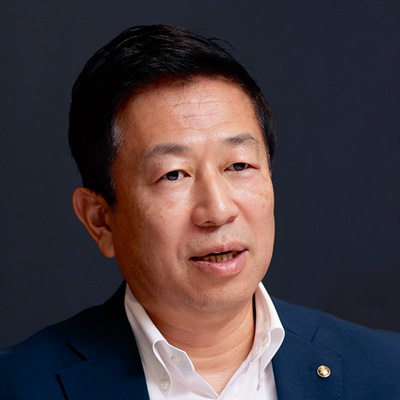
“We look forward to ABeam’s continued support for our efforts to increase our fan base in various ways through the use of digital technology.”
President
Yamaha Music Japan Co., Ltd.
Mr. Yuji Matsuoka
Why ABeam
Proposal of specific model content based on insights drawn from various industries
With ABeam’s support, Yamaha Music Japan executed two projects from January to October 2020 to “develop closer ties with customers”: planning a business for performance support services to enhance service value and designing a new Group-wide membership program to establish a common policy for the implementation of membership services by Group companies.
In designing the Group’s new membership program to enhance customer LTV, the goals from both Yamaha’s and customers’ perspectives were defined, along with the metrics for achieving the vision. It was decided that, when Group companies develop membership services, these metrics would be applied, with the ultimate goal being increased sales for Yamaha and the realization customers’ dreams.
Then, in May 2023, a project was launched to plan a subscription-based VOD service as part of performance support services. Analysis revealed that customers go through two phases: the beginner phase, during which they enjoy playing and naturally acquire the basics of playing an instrument, and the expert phase, during which they devote time and money to achieving personal goals. Therefore, the project first focused on formulating the content of the VOD service aimed at the beginner phase. Subsequently, a project was initiated to support the establishment of store operations through online-merge-offline (OMO), aiming to set a course leading to improved operational efficiency and sophistication by integrating digital channels with directly managed stores/schools.
Yamaha Music Japan selected ABeam as its partner for a project to develop a company-wide LTV-related policy starting in 2020, as well as for subsequent planning of specific services. Mr. Kazunori Nakayama, Division Manager of the Service Business Strategy Division at Yamaha Music Japan, recalls: “We approached several consulting firms and held a competition. Among them, ABeam’s proposal stood out because it capitalized on insights in various industries, and it presented a model that was highly relevant to us as a musical instrument manufacturer. ABeam not only addressed matters requiring management to make decisions but also provided clear definitions of terms and concrete approaches to convince those in the field. ABeam’s proposal tackled the core issues, even suggesting, if necessary, a change to our personnel system. We were confident that, with the level of support ABeam offered, the project would succeed, which is why we chose them.”
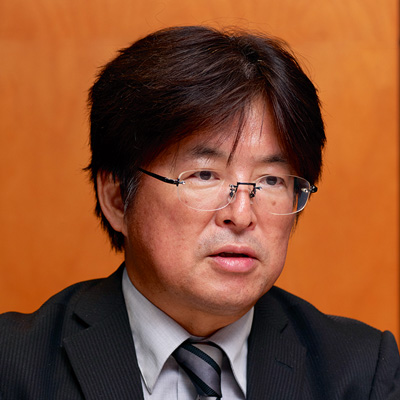
“We are truly grateful to ABeam for supporting us in building closer ties with our customers.”
Division Manager
Service Business Strategy Division
Yamaha Music Japan Co., Ltd.
Mr. Kazunori Nakayama
LTV and customer loyalty components of Yamaha Music Japan
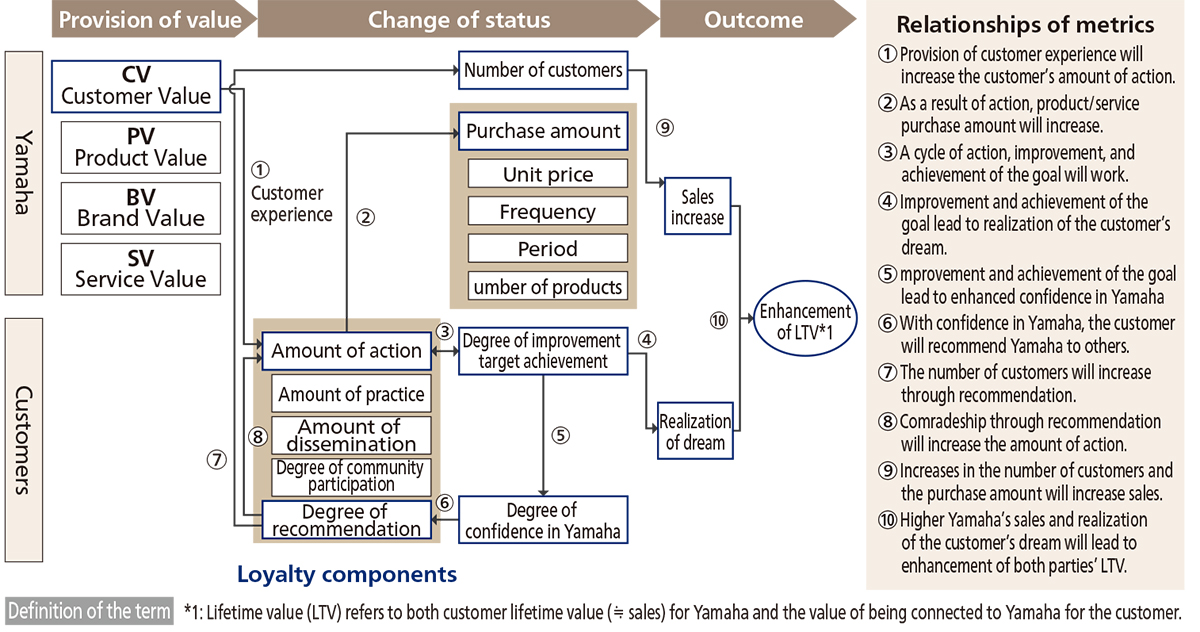
Project goals, challenges, and solutions
Building a shared understanding among multiple stakeholders with complex involvement
In order to connect with customers, it is necessary to make operations much more sophisticated through digital technology. However, since Yamaha Music Japan’s directly managed stores/schools had long operated on the basis of individual optimization and analog methods, the company needed to streamline operations before proceeding to greater sophistication. Therefore, the project to support establishment of OMO store/school operations was carried out in two phases. First, the project aimed to resolve the challenges in improving efficiency, thereby creating more capacity in the field. Second, this capacity would be leveraged to achieve sophistication and the ideal operational model.
In order to transform the directly managed stores/schools and achieve the goals, three issues were identified: 1) a lack of digital touchpoints to connect with customers, 2) the need to evolve the customer service style in the field using digital technology, and 3) a lack of mechanisms to encourage behavioral change in the field. To address these issues, the project team focused on five themes: 1) promoting customer registration with Yamaha Music Members, the starting point for maintaining customer connections; 2) developing online services and tools to maintain customer connections; 3) strengthening online operational capabilities in the field to realize OMO; 4) designing company-wide functions to support seamless online operations in the field; and 5) designing KPIs to ensure that the field actively maintains customer connections.
“All our employees love musical instruments and have worked tirelessly to fulfill our customers’ needs, including through the provision of customer service. However, as a result, operations became so complex that employees were fully occupied, which delayed the adoption of new initiatives such as digitization.
Therefore, we decided to first focus on improving operational efficiency, and then move on to enhancing the sophistication of our operations by utilizing digital technology,” says Mr. Eisuke Nara, Manager of the Customer Success and Business Planning Department, Service Business Strategy Division, Yamaha Music Japan.
With multiple stakeholders involved, including wholesalers, directly managed stores, and schools, and employees in various positions ranging from management to the frontline, ABeam leveraged its neutral position to facilitate communication and help foster shared understanding among all parties. “Working alongside us, ABeam immersed itself in the operations of our directly managed stores, gaining insights into the real situation, which allowed us to have productive discussions. With a deep understanding of even the subtle differences among Group companies, ABeam helped us develop a practical, feasible process,” says Mr. Nakayama.
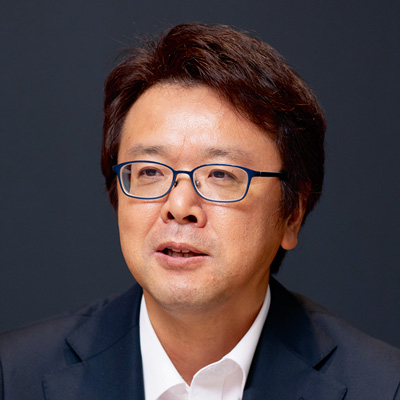
“While valuing our strong relationship with ABeam, which has become an indispensable partner for us, we will continue to cultivate a community of like-minded individuals within the company who share the same aspirations.”
Manager
Customer Success and Business Planning Department
Service Business Strategy Division
Yamaha Music Japan Co., Ltd.
Mr. Eisuke Nara
Steps toward digitalization for achieving OMO
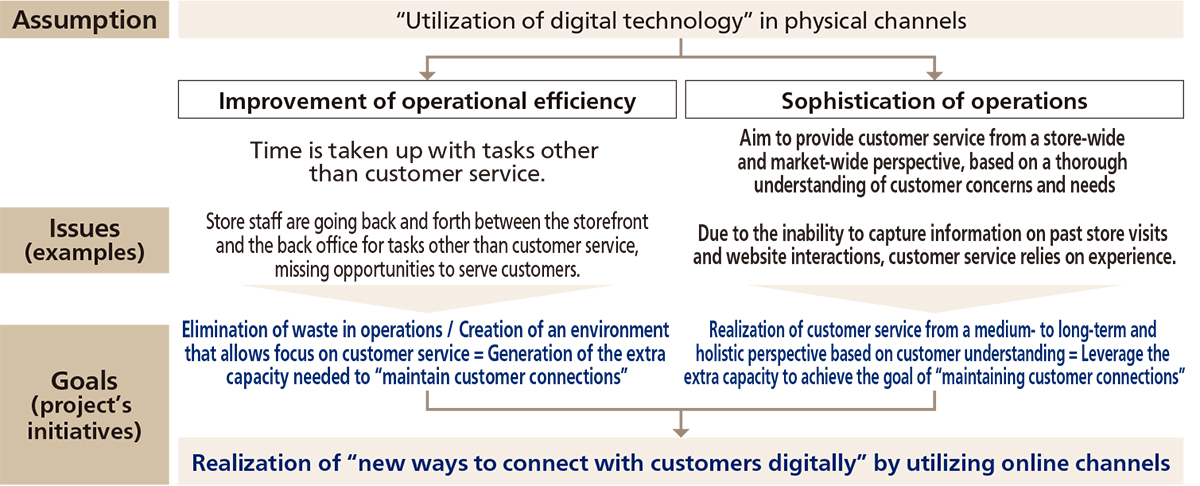
Results and future prospects
Outcomes of the discussions steadily implemented, leading to digitization and launch of new services
Through the OMO project, Yamaha Music Japan achieved significant progress in bridging the gaps in understanding of the goals of LTV enhancement across its Group companies and divisions. Moreover, through ABeam’s presentation of a vision of the goals and the consensus-building discussions with stakeholders, Yamaha Music Japan was able to clarify the concept of LTV enhancement and establish a firm foundation. Currently, the outcomes of these discussions are being steadily implemented through an early small wins approach. In December 2023, Yamaha Music Japan digitized the point card system of its directly managed stores by introducing an app. “By September 2024, more than half of the customers visiting our stores were using the app, enabling us to link customer information with purchase data,” says Mr. Nara.
In June 2024, Yamaha Music Japan achieved full digitalization of event ticketing, coinciding with the opening of its directly managed store in Minato Mirai, Yokohama. The entire process—from event notification and registration to billing, and ticket issuance—is now digitalized, allowing visitors to enter event venues using their smartphones. This transformation has enabled Yamaha Music Japan to track customer behavior patterns, which were previously disconnected, and has greatly deepened communication with customers. In August, the company launched “Yamaha Music Members Plus,” a subscription-based service designed to support members in playing musical instruments. “By effectively leveraging the OMO operations of our directly managed stores, which have started to yield positive results, we aim to further increase the number of Yamaha fans,” says Mr. Matsuoka. “In the past, solutions for the music and musical instrument business were often found in the West. Now, with no clear role models anywhere in the world, we aspire to create new customer experiences and new ways to enjoy music here in Japan and share them globally.”
Yamaha Music Japan is formulating a roadmap in a new medium-term management plan to be launched in FY2025. By addressing challenges and driving transformation through company-wide engagement, Yamaha Music Japan intends to achieve growth.
Customer Profile
- Company name
- Yamaha Music Japan Co., Ltd.
- Estd.
- 2013
- HQ Location
- YOKOHAMA SYMPHOSTAGE West Tower, 1-2, Minato Mirai 5-chome, Nishi-ku, Yokohama-shi, Kanagawa Prefecture
- Paid-in capital
- 100 million yen (100% owned by Yamaha Corporation)
- Business
- Sale of musical instruments, soundproof rooms, and audio equipment, and operation of music schools in Japan

Feb 19, 2025
- Corporate data and titles are those in use at the time of writing.
Click here for inquiries and consultations
